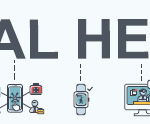ACR experts break down MIPS, MVPs & the RISE registry, helping clinicians understand quality reporting requirements for 2026 & beyond.

Incorporating Patient-Reported Outcomes into the Clinic
‘Measuring patient-reported outcomes (PROs) is an important component of high-quality, patient-centered care, but integration of PROs into clinic can be challenging,’ says Physician Editor Bharat Kumar, MD, MME, FACP, FAAAAI, RhMSUS. ‘Luckily, tools exist to help us realize this vital aspect of patient care.’ The ACR’s quality measures for care include gauging disease activity and…

RheumCode: Creating a Common Rheumatology Language in EHRs
This ACR initiative aims to create a common language to define key data elements for rheumatology and make it easier to compare patient data across EHR systems.

In the Wake of Hurricanes Helene & Milton: Lessons Learned
Editor’s note: As states prepare for Hurricane Milton, at least 223 people have died and hundreds are still unaccounted for in the destruction wrought by Hurricane Helene on Sept. 26. North and South Carolina, as well as Tennessee, were hard hit, and the U.S. medical system is being tested. Headlines include: “Helene Nearly Turned a…
‘Don’t Block Patient Access to Records,’ says HHS to Healthcare Providers
The Department of Health & Human Services has released a final rule that would penalize healthcare providers who interfere with a patient’s access to, exchange or use of their electronic health information.

Rheumatologists Share Lessons Learned in the Wake of Hurricane Ida
Hurricane Ida intensified in the last two weeks of August 2021, battering the Cayman Islands and Cuba before hitting the Louisiana coast as a Category 4 storm just before Labor Day weekend.1 At landfall, Ida blasted southern Louisiana with maximum sustained winds of 150 knots, then turned in a north-northwestern direction to hit the New…

Study: Don’t Automatically Blame Burnout on Electronic Health Records
When it comes to experiencing burnout, time spent in an electronic health records (EHR) system appears to be only a minor contributing factor. Although clinicians and other healthcare professionals may log many hours at the keyboard putting information into the EHR, other factors likely play a bigger role in the workplace exhaustion and feelings of…

Coding Corner: Interprofessional Telephone/Internet/Electronic Health Record Assessment & Management
Example 1 A cardiologist contacts a rheumatologist concerning a lupus patient. The rheumatologist sees the patient four weeks later for a complete examination. A 20-minute call is initiated to review the findings and the patient’s chart with the cardiologist. After the call is completed, the rheumatologist completes a verbal and written report to the patient’s…

The 21st Century Cures Act Information-Blocking Rule
The 21st Century Cures Act (Cures Act) became law on Dec. 13, 2016, and emphasized interoperability in the exchange of healthcare information between healthcare providers, health information entities and patients. The Cures Act underscored unimpeded access to patient electronic health information (EHI) upon request, in a manner that is secure and updated automatically, and prohibits…
CDC-Funded RISE Project Aims to Improve Systemic Lupus Erythematosus Patient Outcomes
In September 2020, the ACR received a $7 million grant for a four-pronged SLE approach that seeks to address gaps and inequities in SLE through physician education, medical school outreach, pediatric support and disease management.
- 1
- 2
- 3
- …
- 10
- Next Page »